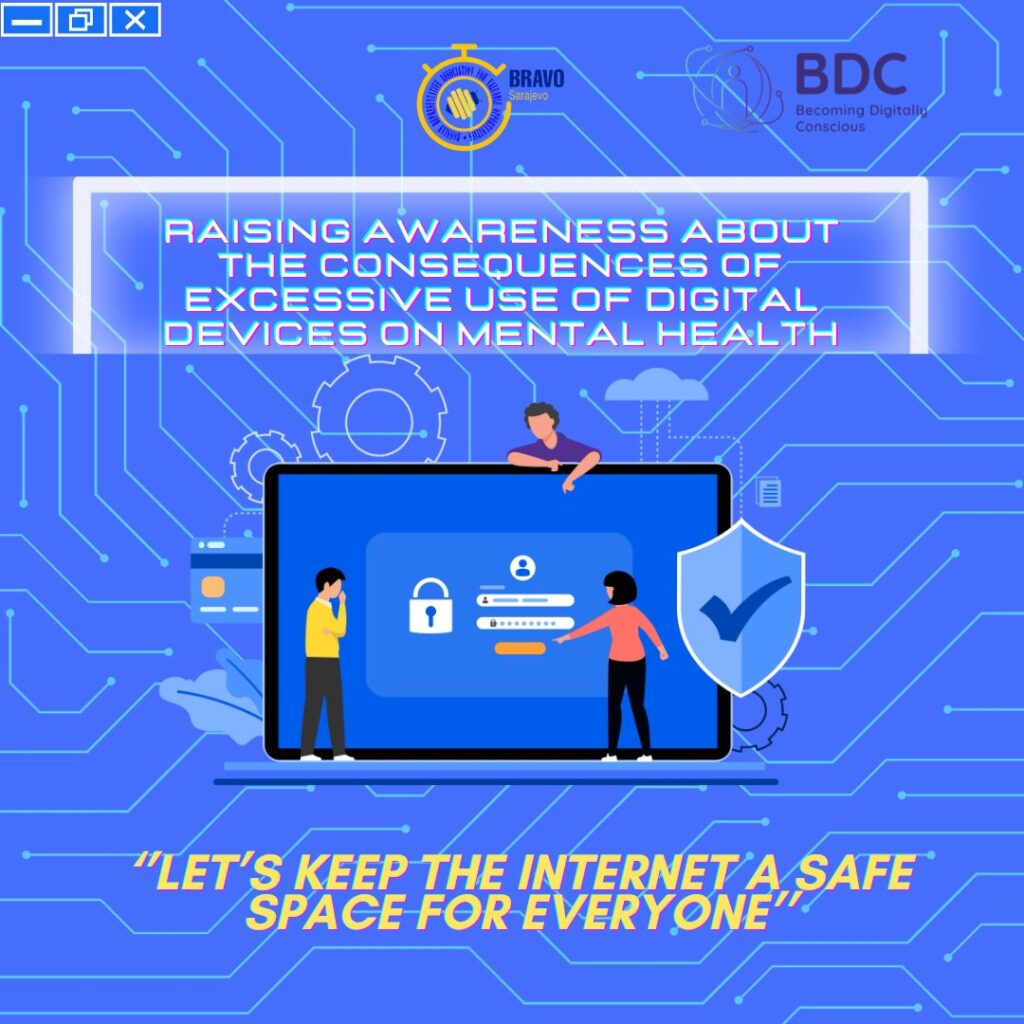
It is a well-known fact that today we cannot imagine our daily lives without the use of digital devices, which we use for various purposes, such as information, social networking, entertainment, and many other contents. Although most of the content we use is genuinely useful and facilitates our daily lives, providing quick access to information and communication, excessive use of digital devices can undoubtedly lead to certain dangers, particularly in the context of psychological disorders, and can jeopardize our mental health.
Through this article, we will examine some of these consequences and provide a better understanding of the effects that digital tools can unintentionally cause.
One of the most common problems resulting from excessive use of digital devices is addiction or obsession. Although it is challenging to admit, most of us are affected by this issue. We often catch ourselves panicking when we do not have access to the internet, or when our battery is low, or for various other reasons preventing us from using our digital devices. However, what deserves special attention is that this can lead to serious consequences that have an extremely negative impact on us, such as reduced productivity, impaired concentration, and increased anxiety when trying to separate from these devices.
Excessive use of digital devices seriously impairs mental health in the sense that, for example, on social media, we often witness “filtered” lives in which people present unrealistic content that can trigger depression, anxiety, or a feeling of loneliness. It can also lead to a lack of self-confidence when users compare themselves and their lives with images they increasingly see on the internet, which are not realistic.
Also, excessive screen time often results in neglecting the people physically present in our lives. We might find ourselves absorbed in our devices during family dinners, dates, or important conversations, which can create relationship strain. Neglecting the people we care about can lead to misunderstandings, conflicts, and a sense of detachment within our relationships.
The more time we spend immersed in the digital world, the less time we allocate to meaningful face-to-face interactions. This leads to a significant emotional disconnect from our loved ones. Human connection is vital for our well-being, and excessive use of digital devices can erode these connections, leaving us feeling isolated and emotionally distant from those around us.
A lack of social interaction, a sense of loneliness, reduced emotional connection with other people are just some of the psychological and social disorders that can arise as a result of unconscious use of digital tools.
Through the “Becoming Digitally Conscious” project, we aim to educate youth and thus influence the development of awareness about the consequences of inadequate and excessive use of digital devices. Our goal is to reduce or completely prevent the incidence of depression, anxiety, and other psychological disorders, which are unfortunately becoming more and more prevalent in our society.
More about "BDC" project:
“Becoming Digitally Conscious” is a Capacity Building project targeted at the promotion of healthy digital habits among young people (between 18 and 25 years old) living in the European and Western Balkans area. The goal is to make this group aware of the potential dangers of making excessive use of digital devices, such as psychological disorders (e.g., eating disorders and depression). Considering that virtual reality has become an essential part of young people’s lives (especially during the covid-19 pandemic to study or socialize, which before they did mainly offline), we believe it is important to train them on how to integrate digital devices in a healthy and conscious way. Through the education of youth workers, the project will contribute to increasing the quality, innovation, and recognition of youth work, supporting the sharing of methods to address the opportunities and implications of digitalization. Of course, it is as well related to “Addressing digital transformation through the development of digital readiness, resilience and capacity” because all major social changes imply some areas of risk that need to be reflected upon to mitigate the issues created (in this case digital addiction).
